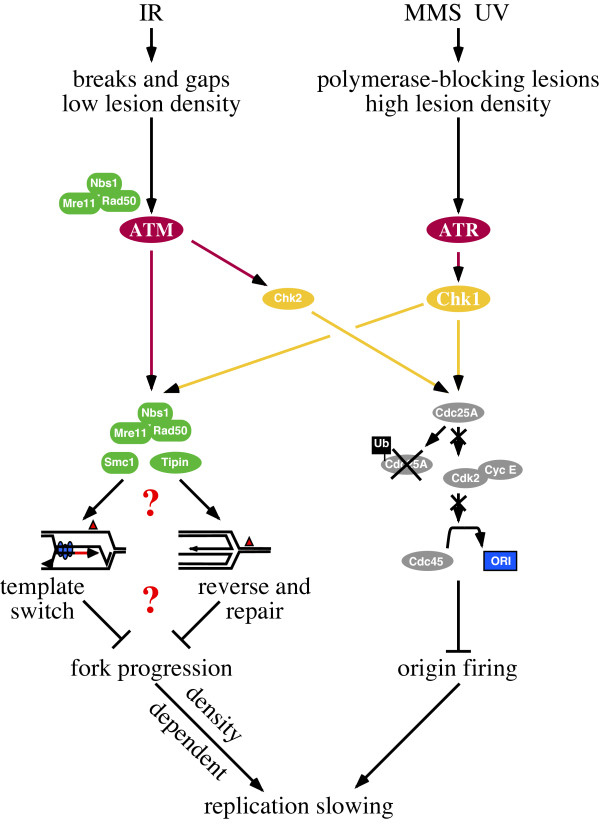Figure 3.
A Model for Checkpoint-Dependent Slowing of Replication. Different types of damage produce different densities of DNA lesions and therefore may have different consequences on replication. Both ATM and ATR regulate origin firing and fork response to DNA damage. However, the DNA damage determines the degree to which replication forks are slowed. IR produces a relatively low frequency of DSBs, which effect few forks while damaging agents producing a high density of bulky adducts including MMS and UV effect origins and many replication forks. Replication fork slowing may involve regulation of template switching or coordinating fork progression with repair.

